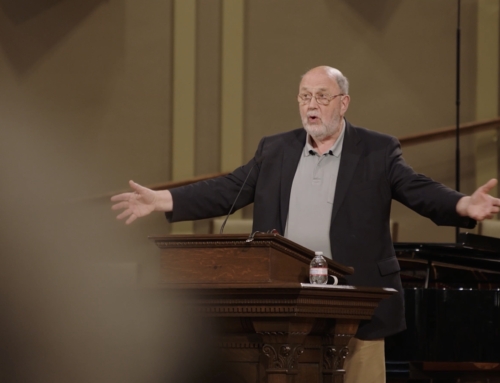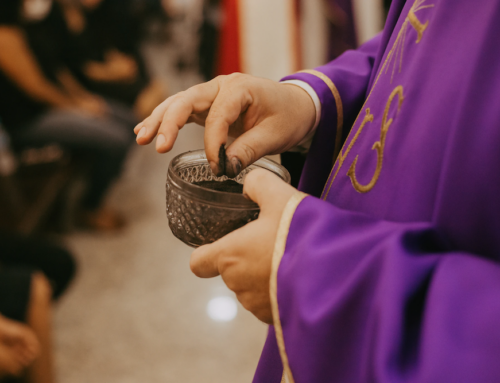N.T. Wright’s course, Servant King The Servant King is now available to the public for a special price until Monday, July 21st, at midnight PDT. Click Here for more information.
From the Desk of Prof. N.T. Wright:
Some of the early Fathers regarded Isaiah as ‘the great prophet’. Some even saw the book as ‘A Fifth Gospel’. It’s easy to see why.
When you think of scriptural passages which point to a coming king, Isaiah chapters 9 and 11 come to mind. When you think of a royal figure who will suffer to bring about God’s long-planned redemption, the ‘servant songs’ in Isaiah 40–55, climaxing in chapter 53, are the obvious places to go. And when you reflect that the New Testament celebrates the strange victory of God, through his anointed one, over all the dark forces in the world, all with the aim of bringing about the new heavens and new earth, then Isaiah 56–66 are the natural place to look.
But it is that middle section which stands out to most interpreters today, and again it’s not difficult to see why. These chapters constitute one of the greatest poems ever written, touching the heights and depths of human and spiritual experience, reaching a sustained climax which opens a vista on creation itself renewed and restored.
If these chapters had been lost for centuries, and then turned up in some archaeologist’s dig, every newspaper in the world would offer excited headlines: a world-class masterpiece had been discovered! But for most people – even for most Christians – it’s just ‘that bit in the middle of Isaiah’.
So what is the passage basically about? It is addressed to the people of Israel in the Babylonian exile about which Deuteronomy had earlier warned and the prophet Isaiah himself had warned in chapter 39. Babylon had destroyed Jerusalem, taking most of the Judaean people captive into an exile from which they must have thought they would never return. The prophets had insisted that this exile was not a mere political disaster. It was divine punishment, the covenant retribution which was bound to follow Israel’s long-running idolatry and sin.
But the worst thing of all was that Israel’s God, YHWH, had himself abandoned his people. He had left the Temple to its fate, as Ezekiel describes. So one of the main frames of this section is the great promise of YHWH’s return, in 40.1–11 and in 52.7–12. The prophet envisages a voice calling out a message of comfort to Zion: it’s over! Your punishment is finished! So flatten the hills and fill in the valleys and roll out the red carpet, because he’s coming back at last!
Then there follows the (to us) strange combination of descriptions: Israel’s God is gentle like a shepherd taking care of lambs, and majestic as the one who holds the whole creation in the hollow of his hand. The passage looks ahead to 52, where Zion’s watchmen are told to shout because they will see YHWH in plain sight, returning to Zion at last. And this time the promise is coupled with commands about the Jews themselves returning from Babylon, going back to rebuild the Temple.
These two passages then point on to the conclusion of the section in chapters 54 and 55. The covenant will be renewed (54), and thus creation itself will be renewed (55). When God does for Israel what he’s going to do for Israel, then the nations will share in the blessing – and the human blessing is the means by which God the creator, who made humans in his image to be his stewards in his world, will renew the whole creation itself. All this is expressed in glorious, vivid, hope-filled poetry.
The heart of the whole passage is the steadily developing picture of the ‘Servant of YHWH’. This character is introduced in chapter 42, and the reader wonders: who is this? He appears royal, like the figure in chapters 9 and 11. Is he ‘Israel’ itself? In a sense yes; he is given that name. But in a sense no: as the picture develops in chapter 49 and 50 (after further great promises, and terrifying warnings for the wicked city Babylon), the ‘servant’ appears to stand over against the people, doing for them what they cannot do for themselves. Simultaneously we are introduced to another character: ‘YHWH’s “arm”’. YHWH has rolled up his sleeves, says the prophet (52.10), so that his own personal power will do the job, overthrowing Babylon and rescuing Israel.
But in chapter 53 it seems – to our astonishment and perhaps our horror – that the ‘Arm’ and the ‘Servant’ are one and the same: ‘who would have thought,’ the prophet asks, that he — this bruised and bleeding one – would be ‘YHWH’s arm’? (53.1). But so it is: the announcement that YHWH is coming back to save and heal his people, gentle like a shepherd but majestic over the world, is fulfilled in the Servant himself, in his death and subsequent vindication. This is the way, the only way, in which the sins of the people can be dealt with so that the creator’s saving plan for the world can go forward.
It doesn’t take much imagination to see how all this was drawn on eagerly by the first Christians. When they said that ‘the Messiah died for our sins in accordance with the Scriptures’, they didn’t just have the odd verse here and there in mind. (Nor were they simply thinking of Isaiah: everything from Genesis to Malachi is there too by implication.) They had the entire sequence of thought of chapters 40–55. This is what it looked like when Israel’s elongated ‘exile’ was undone at last. This is the means by which the sins not only of the people but of the whole world would be dealt with, so that God’s ancient covenant could be renewed and the whole world filled with the divine glory.
The more we get to know Isaiah 40–55, the more we will understand how the first followers of Jesus understood ‘the gospel’ Click To TweetThe more we get to know Isaiah 40–55, the more we will understand how the first followers of Jesus understood ‘the gospel’ (Isaiah 40.9; 52.7). The more we relish the sweep and subtlety of its poetry, the more dimensions of salvation we will glimpse. The more we pray our way through it, listening for the voice of the Spirit, the more we will be led into the celebration of God’s presence with us here and now; and the more we will be equipped to be new-covenant people ourselves, working in the present time to bring about true signs of the new creation which is the ultimate fruit of the Servant’s work.
Isaiah is indeed the ‘great prophet’. Those who love and pray this book will be equipped for the prophetic tasks we will need in the next generation.
Latest posts by N.T. Wright (see all)
- Sneak Peek: What to Expect When Prof. Wright Comes to Houston - May 11, 2023
- The Music of New Creation: Holy Week Eucharist Reflections from N.T. Wright - April 14, 2022
- Hope Amid the Broken Signposts - February 17, 2021







